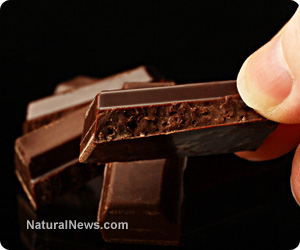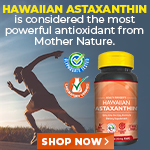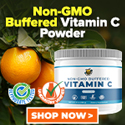
Chocolate's health effects to be tested by scientists over next four years
Sunday, April 06, 2014 by: Ethan A. Huff, staff writer
Tags: chocolate, health effects, cocoa flavanols
- Newly released JFK files reveal Pentagon's role in creating Lyme disease and covid in the same lab
- DEADLY DECEPTION: How COVID vaccines increased mortality rates and why authorities hid the truth
- CDC finally halts $11 billion COVID funding scam as health officials admit the ‘pandemic’ was a fraud
- Here are TEN all-natural ways to protect your garden without using harmful chemicals
- GAIN-OF-FUNCTION CAT-BIRD-FLU now on the rise as nearly a dozen cats in Colorado "test positive" for Bird Flu due to contaminated cat food
- Ginseng's hidden anti-aging power: How compound K is rewriting the rules of skincare
- “Endgame: The Hidden Agenda 21” unveils a world of conspiracy and control
- ATTENTION PRESIDENT TRUMP: Please WITHDRAW your nomination of Dr. Susan Monarez for CDC Director as she is a VAX FANATIC and TOXIC JAB ZEALOT
- Senate Democrats deny censorship industrial complex existed, defend government's role in silencing dissent
- Scientists demand FDA withdraw mRNA COVID vaccines amid contamination and gene therapy concerns
- “The shame of Minnesota”: Somali immigrants behind $250 million child nutrition fraud in largest COVID-era scam
- L.A.'s rebuilding nightmare: Only 4 permits issued after fire destroys 6,000 homes
- Former Congresswoman exposes CCP's deep infiltration of California through universities, ports, and fentanyl
- Despite surge in MMR vaccination in Texas, measles outbreaks continue: Is VACCINE SHEDDING fueling the spread?
- Judicial bias exposed: Judge who blocked Trump's gang deportations attended secretive left-wing conference
- Chewing gum's dirty secret: How your daily habit could be flooding your body with microplastics
- BPA: The hidden hormone disruptor sabotaging your health - and how to fight back
- PROCESSED TABLE SALT in foods found to fuel depression
- Newly released JFK files reveal Pentagon's role in creating Lyme disease and covid in the same lab
- Elon Musk: Aliens could be here on Earth RIGHT NOW
- Festive flavors: The sweet history, nutritional profile and health benefits of pecan pie
- Trump reverses course on Gaza plan, says “nobody is expelling Palestinians”
- Reclaim your health: How midlife exercise reverses years of inactivity
- Big Pharma's $8 Billion bribery scheme exposed: how doctors are pushed to prescribe junk science, not heal
- Boys are back in town: Trump’s patriotic alpha crew takes the wheel while toxic females ride in the backseat
- EPA advisor admits the agency is funneling billions to climate groups ahead of Trump’s return to White House
- Space war brewing? Russia threatens to destroy Starlink satellites
- Survival 101: Effective EMF blocking techniques
- A lack of integrity in Academia: Harvard professor found GUILTY of fraudulent research to promote CRT theory
- Mike Adams Sermon 66: God will DESTROY ISRAEL for its wickedness
- 5 Simple steps to boost your brainpower: How to strengthen executive function in a distracted world
- Rep. Nancy Mace introduces bill to ban biological males from female facilities on federal property
- Sugarcane extract superior to cholesterol-lowering drugs?
- WHO focusing more on policing speech about public health and implementing global surveillance systems
- Pilots report mysterious lights 'moving at extreme speeds' across Oregon skies
- Dr. Mike Yeadon releases 15-minute testimony - WATCH - about genocidal intent of COVID “vaccines”
- EPA advisor admits the agency is funneling billions to climate groups ahead of Trump’s return to White House
- The Health Ranger releases “Vaccine Zombie” song and music video, using AI-animated zombies for the music video
- California's social media censorship law struck down: A victory for free speech or a threat to online safety?
- Dr. Mike Yeadon releases 15-minute testimony - WATCH - about genocidal intent of COVID “vaccines”
- The pandemic as a tool for INDOCTRINATION: Understanding “The Indoctrinated Brain” by Dr. Michael Nehls
- Florida takes a stand: DeSantis proposes permanent ban on mRNA vaccine mandates
- Mike Adams releases country western hit single: Goin’ Back in Time is Comin’ Home
- Mike Adams releases music poetry sensation: A Child of God
- “Why we influenced the 2020 elections”: Facebook files reveal the coordinated effort to bury the Hunter Biden laptop story
- RFK Jr. clears key hurdle: Sen. Susan Collins backs controversial HHS nominee, signaling a new era for health policy
- Unpacking the Lies That We’ve Been Fed – new song and music video released by Mike Adams, the Health Ranger
- Mike Adams releases new song and music video: Nothing More Disgusting Than a Globalist
- Newly released JFK files reveal Pentagon's role in creating Lyme disease and covid in the same lab
- Congratulations to the FULLY UNVACCINATED as you resisted the COVID-19 PROPAGANDA MACHINE fueled by over $100 BILLION
- Michigan sheriff announces criminal investigation into 2020 election crimes, Dominion Voting Systems
- Israeli soldiers accused of even more torture and abuse in the West Bank
- Migrants are taking advantage of recent hurricanes to scam residents and loot their homes
- House Intelligence Committee calls for the ARREST and PROSECUTION of Dr. Anthony Fauci
- Red Cross issues warning to stop blood plasma donations from vaccinated people
- Scientists confirm: GENIUS brain function can be spontaneously unleashed in humans without any apparent cause
- EPA advisor admits the agency is funneling billions to climate groups ahead of Trump’s return to White House
- HYSSOP: What research reveals about the health benefits of this ancient holy herb
- Two containers with completed ballots fall out of truck in Florida
- Fully vaccinated about to see “tsunami” of illness and death, warns virologist
- Global leaders unite to clamp down on “misinformation” with UN-backed Cascais Declaration
- BREAKING: 2025 NDAA authorizes mandatory military draft of WOMEN across America… as Pentagon pursues global NUCLEAR war with both Russia and China at the same time
- Michael Yon warns of a ZIONIST TAKEOVER in Trump’s second administration
- BOMBSHELL: DNA testing kits are a SCAM to develop ethnic-specific bioweapons
- Ozempic and Wegovy weight loss drugs are injectable LIZARD VENOM PEPTIDES that may unleash a devastating wave of organ failure… side effects align with symptoms of SNAKE BITES
- Israeli soldiers accused of even more torture and abuse in the West Bank
- These 13 countries just signed an agreement to engineer a global FAMINE by destroying food supply
- NASA admits that climate change occurs because of changes in Earth’s solar orbit, and NOT because of SUVs and fossil fuels
- RFK Jr. clears key hurdle: Sen. Susan Collins backs controversial HHS nominee, signaling a new era for health policy
- Sermon 30: How Jesus reveals Caesar’s FAKE CURRENCY and FALSE AUTHORITY
- Coriander seeds: Ancient medicine backed by modern science
- Arizona officials claim Maricopa County needs 10-13 days to tabulate results of the election
Slated to include 18,000 men and women from both Seattle and Boston, the study will compare the health outcomes of some participants taking a daily dose of 750 milligrams of cocoa flavanols -- this is the equivalent of what is found in about five bars of dark chocolate -- to others taking a placebo. Rather than consume actual chocolate bars, participants will instead take a daily pill containing a concentrated dose of the key nutrients.
According to an Associated Press (AP) announcement, the unique study not only is larger than previous ones involving chocolate, the findings of which it aims to affirm, but is also being better constructed. By looking at cocoa flavanols specifically rather than chocolate bars as a whole, researchers involved with the project hope to gain a better understanding of how chocolate can help people maintain healthy blood pressure, avoid heart disease and balance cholesterol levels.
"The study will be the first large test of cocoa flavanols, which in previous smaller studies improved blood pressure, cholesterol, the body's use of insulin, artery health and other heart-related factors," writes Marilynn Marchione for the AP.
Processed chocolate isn't healthy, say authors
The problem with much of the reporting on chocolate's health benefits is that it fails to identify actual cocoa, rather than processed chocolate, as the substance of merit. It is the antioxidant compounds found naturally in cocoa, as well as other beneficial substances, that provide actual health benefits -- a Snickers bar, on the other hand, simply won't cut it."You're not going to get these protective flavanols in most of the candy on the market," says Dr. JoAnn Manson, preventive medicine chief at Brigham and Women's Hospital in Boston, who will lead the new study. "Cocoa flavanols are often destroyed by the processing."
The randomized, double-blind study, though supported in part by candy companies, is being structured to look specifically at these cocoa flavanols rather than chocolate products in general. The honest goal of the project, it seems, is to truly evaluate the health benefits of cocoa specifically, as clarified by Dr. Manson, for the purpose of promoting public health.
"This is not really intended to be a study of chocolate candy," she adds, as quoted by CBS Boston. "This is a study of the bio-active nutrients within the cocoa bean."
Research team will also look at multivitamins for preventing cancer
The same group of scientists is planning to evaluate the health benefits of multivitamins as part of the study, specifically in regard to preventing cancer. Like the cocoa flavanols component, a large cross-section of the population will be evaluated to see whether or not multivitamins are an effective way to decrease cancer risk naturally."Cocoa flavanols and multivitamins are two of the most promising and exciting nutritional interventions available, and this new randomized trial is the natural next step in advancing our understanding of their potential benefits," says Dr. Manson.
Sources for this article include:
http://bigstory.ap.org
http://boston.cbslocal.com
http://www.brighamandwomens.org
Chocolate at FETCH.news
Get independent news alerts on natural cures, food lab tests, cannabis medicine, science, robotics, drones, privacy and more.
Take Action: Support Natural News by linking to this article from your website
Permalink to this article:
Embed article link: (copy HTML code below):
Reprinting this article:
Non-commercial use OK, cite NaturalNews.com with clickable link.
Follow Natural News on Facebook, Twitter, Google Plus, and Pinterest
Science News & Studies
Medicine News and Information
Food News & Studies
Health News & Studies
Herbs News & Information
Pollution News & Studies
Cancer News & Studies
Climate News & Studies
Survival News & Information
Gear News & Information
News covering technology, stocks, hackers, and more



"Big Tech and mainstream media are constantly trying to silence the independent voices that dare to bring you the truth about toxic food ingredients, dangerous medications and the failed, fraudulent science of the profit-driven medical establishment.
Email is one of the best ways to make sure you stay informed, without the censorship of the tech giants (Google, Apple, Facebook, Twitter, YouTube, etc.). Stay informed and you'll even likely learn information that may help save your own life."
–The Health Ranger, Mike Adams













































